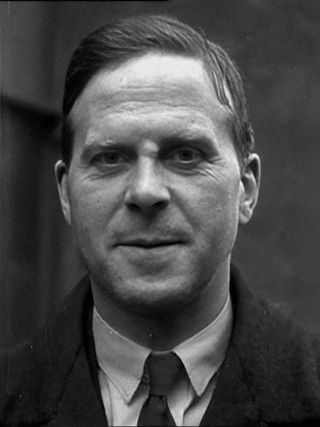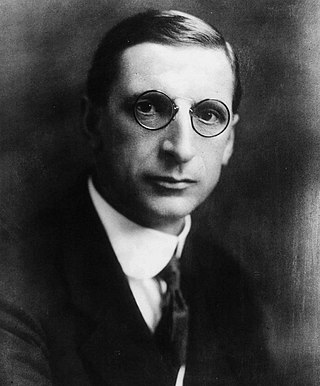
John Aloysius Costello was an Irish Fine Gael politician who served as Taoiseach from 1948 to 1951 and from 1954 to 1957, Leader of the Opposition from 1951 to 1954 and from 1957 to 1959, and Attorney General of Ireland from 1926 to 1932. He served as a Teachta Dála (TD) from 1933 to 1943 and from 1944 to 1969.

Charles James Haughey was an Irish Fianna Fáil politician who led four governments as Taoiseach: December 1979 to June 1981, March to December 1982, March 1987 to June 1989, and June 1989 to February 1992. He was also Minister for the Gaeltacht from 1987 to 1992, Leader of the Opposition from 1981 to 1982 and 1982 to 1987, Leader of Fianna Fáil from 1979 to 1992, Minister for Social Welfare and for Health from 1977 to 1979, Minister for Finance from 1966 to 1970, Minister for Agriculture from 1964 to 1966, Minister for Justice from 1961 to 1964 and Parliamentary Secretary to the Minister for Justice from 1959 to 1961. He served as a Teachta Dála (TD) from 1957 to 1992.

Liam Cosgrave was an Irish Fine Gael politician who served as Taoiseach from 1973 to 1977, Leader of Fine Gael from 1965 to 1977, Leader of the Opposition from 1965 to 1973, Minister for External Affairs from 1954 to 1957, and Parliamentary Secretary to the Minister for Industry and Commerce and Government Chief Whip from 1948 to 1951. He served as a Teachta Dála (TD) from 1943 to 1981.

Erskine Hamilton Childers was an Irish Fianna Fáil politician who served as the fourth president of Ireland from June 1973 to November 1974. He is the only Irish president to have died in office. He also served as Tánaiste and Minister for Health from 1969 to 1973, Minister for Transport and Power from 1959 to 1969, Minister for Posts and Telegraphs from 1951 to 1954 and 1966 to 1969, Minister for Lands from 1957 to 1959 and Parliamentary Secretary to the Minister for Local Government and Public Health from 1944 to 1948. He served as a Teachta Dála (TD) from 1938 to 1973.

James Ryan was an Irish medical doctor, revolutionary and politician who served in every Fianna Fáil government from 1932 to 1965, successively as Minister for Agriculture (1932–1947), Health and Social Welfare, and Finance (1957–1965). He served as a Teachta Dála (TD) for Wexford from 1918 to 1922 and 1923 to 1965, and as senator from 1965 to 1969. He was a member of Sinn Féin until he joined Fianna Fáil upon that party's foundation in 1926.

Brendan Corish was an Irish Labour Party politician who served as Tánaiste and Minister for Health from 1973 to 1977, Leader of the Labour Party, Minister for Social Welfare from 1954 to 1957 and from 1973 to 1977, Parliamentary Secretary to the Minister for Defence and Parliamentary Secretary to the Minister for Local Government from 1948 to 1951. He was a Teachta Dála (TD) from 1948 to 1982.

Brian Patrick Lenihan was an Irish Fianna Fáil politician who served as Tánaiste from 1987 to 1990, Minister for Defence from 1989 to 1990, Minister for Agriculture from March 1982 to December 1982, Minister for Fisheries from 1977 to 1979, Minister for Foreign Affairs from 1987 to 1989, 1979 to 1981 and January 1973 to March 1973, Minister for Transport and Power from 1969 to 1973, Minister for Education from 1968 to 1969, Minister for Justice from 1964 to 1969, Parliamentary Secretary to the Minister for Justice and Parliamentary Secretary to the Minister for Lands from 1961 to 1964. He served as a Teachta Dála (TD) from 1961 to 1973 and from 1977 to 1995. He served as a Senator for the Industrial and Commercial Panel from 1957 to 1961 and 1973 to 1977. He also served as a Member of the European Parliament (MEP) for the Oireachtas from 1973 to 1977.
Clann na Poblachta was an Irish republican political party founded in 1946 by Seán MacBride, a former Chief of Staff of the Irish Republican Army.

Noël Christopher Browne was an Irish politician who served as Minister for Health from 1948 to 1951 and Leader of the National Progressive Democrats from 1958 to 1963. He served as a Teachta Dála (TD) from 1948 to 1954, 1957 to 1973 and 1977 to 1982. He was a Senator for the Dublin University constituency from 1973 to 1977.

Donogh Brendan O'Malley was an Irish Fianna Fáil politician and rugby union player who served as Minister for Education from 1966 to 1968, Minister for Health from 1965 to 1966 and Parliamentary Secretary to the Minister for Finance from 1961 to 1965. He served as a Teachta Dála (TD) for the Limerick East constituency from 1954 to 1968.
The 5th government of Ireland, commonly known as the First Inter-Party Government, was formed after the 1948 general election held to the 13th Dáil on 4 February. It was an Irish government of Fine Gael, the Labour Party, Clann na Poblachta, Clann na Talmhan and the National Labour Party—and one TD who was an independent, James Dillon. The parties had many different aims and viewpoints, but opposition to Fianna Fáil overcame difficulties in forming a government; Éamon de Valera had led a series of single-party Fianna Fáil governments since 1932. The cabinet was made up of representatives of all parties, and ministers were given a great degree of independence. Some key events during the lifetime of the government include the declaration of the Republic of Ireland in 1948 and the crisis surrounding the Mother and Child Scheme in 1951. It lasted for 1,212 days.

The 1951 Irish general election to the 14th Dáil was held on Wednesday, 30 May following the dissolution of the 13th Dáil on 7 May by President Seán T. O'Kelly on the request of Taoiseach John A. Costello. The general election took place in 40 Dáil constituencies throughout Ireland for 147 seats in Dáil Éireann, the house of representatives of the Oireachtas.

The 1948 Irish general election to the 13th Dáil was held on Wednesday, 4 February following the dissolution of the 12th Dáil on 12 January 1948 by the President Seán T. O'Kelly on the request of Taoiseach Éamon de Valera. The general election took place in 40 constituencies throughout Ireland for 147 seats in Dáil Éireann, the house of representatives of the Oireachtas, with a revision of Dáil constituencies under the Electoral (Amendment) Act 1947, which had increased the number of seats by 9 since the previous election. The election resulted in Fianna Fáil leaving government for the first time in 16 years and the formation of the first coalition government in Ireland.
Rory O'Hanlon is an Irish former Fianna Fáil politician who served as Ceann Comhairle of Dáil Éireann from 2002 to 2007, Leas-Cheann Comhairle of Dáil Éireann from 1997 to 2002, Minister for the Environment from 1991 to 1992, Minister for Health from 1987 to 1991 and Minister of State for Social Welfare Claims in 1982. He served as a Teachta Dála (TD) for the Cavan–Monaghan constituency from 1977 to 2011.

The Leader of the Opposition in Ireland is a de facto term sometimes used to describe the politician who leads the largest party in the Parliamentary Opposition in the lower house of the Irish Parliament, Dáil Éireann. In the Dáil, the Leader of the Opposition sits on the right-hand side of the Ceann Comhairle and directly opposite the Taoiseach. The role is not an official one and is not recognised in the Irish constitution, nor in legislation.

The Constitution of Ireland vests executive authority in the Government of Ireland, which is headed by the Taoiseach, the head of government. The government – also known as the cabinet – is composed of ministers, each of whom must be a member of the Oireachtas, which consists of Dáil Éireann and Seanad Éireann. Most ministers have a portfolio of specific responsibilities such as departments or policy areas, although ministers without portfolio can be appointed.
Events from the year 1951 in Ireland.
Events from the year 1948 in Ireland.
Francis Constantine Ward was an Irish Fianna Fáil politician and medical doctor.
Fine Gael is a political party in Ireland, formed in 1933 as a merger of Cumann na nGaedheal, the National Centre Party, and the Blueshirts.











